

Immanuel Kant
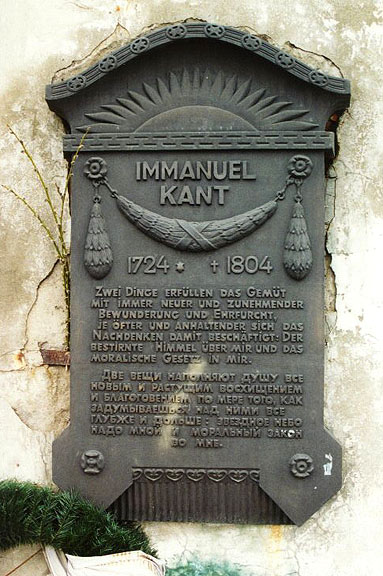
Kant, Immanuel (1724-1804), German philosopher, considered by many the most influential thinker of modern times.
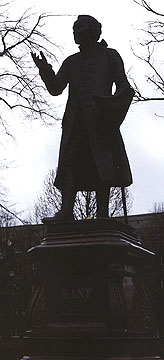
statue on the University campus
Born in Königsberg (now Kaliningrad, Russia), April 22, 1724, Kant received his education at the Collegium Fredericianum and the University of Königsberg. At the college he studied chiefly the classics, and at the university he studied physics and mathematics. After his father died, he was compelled to halt his university career and earn his living as a private tutor. In 1755, aided by a friend, he resumed his studies and obtained his doctorate. Thereafter, for 15 years he taught at the university, lecturing first on science and mathematics, but gradually enlarging his field of concentration to cover almost all branches of philosophy.
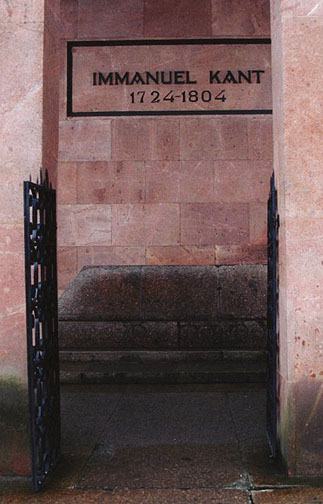
his grave site next to cathedral
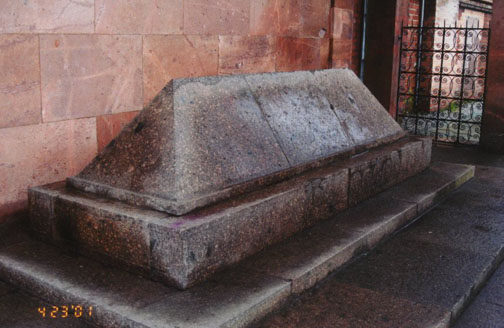
the tomb
Although Kant's lectures and works written during this period established his reputation as an original philosopher, he did not receive a chair at the university until 1770, when he was made professor of logic and metaphysics. For the next 27 years he continued to teach and attracted large numbers of students to Königsberg. Kant's unorthodox religious teachings, which were based on rationalism rather than revelation, brought him into conflict with the government of Prussia, and in 1792 he was forbidden by Frederick William II, king of Prussia, to teach or write on religious subjects. Kant obeyed this order for five years until the death of the king and then felt released from his obligation. In 1798, the year following his retirement from the university, he published a summary of his religious views. He died February 12, 1804.
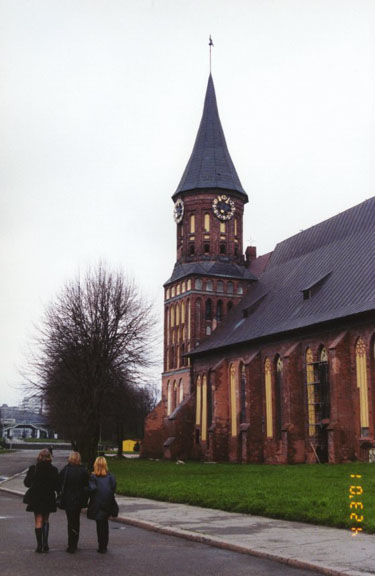
the reconstructed cathedral
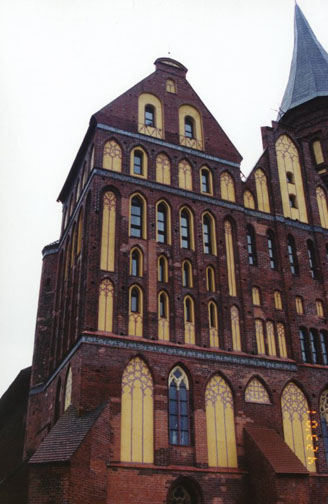
detail of facade
![]()
![]()